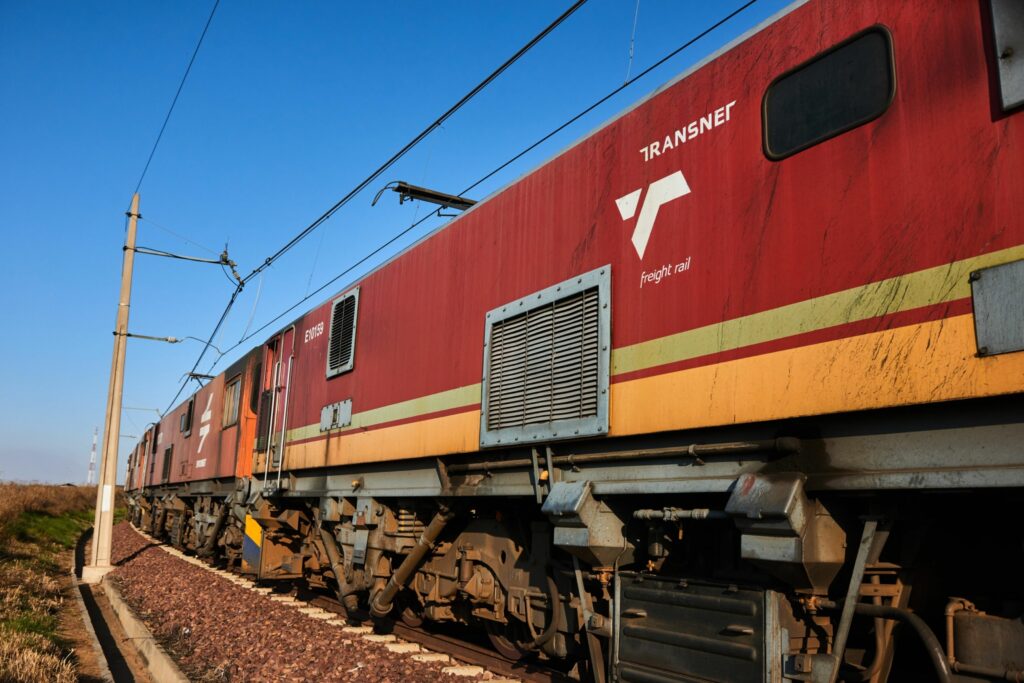You can also listen to this podcast at iono.fm.
advertisement
Continue reading below
Jeremy Maggs: Transport and Transnet veteran Michelle Phillips has been appointed as head of the state-owned rail, ports and pipeline company. It is well known that Transnet is the heart of South Africa's economy, but it is currently on life support. The big question, of course, is whether she can turn things around.
Read: Transnet appoints Philips as group CEO
We would now like to share some insights from Lunga Malloy from Business Unity South Africa (Busa). Mr. Lunga, welcome and thank you for joining us. Michelle Phillips has over 20 years experience working at Transnet. The general feeling among watchers is that this is a good decision.
Lunga Malloy: Hello, Jeremy, and hello to all our listeners. As a business, we share that sentiment. We believe these will significantly improve stability within Transnet, as well as foster a more viable relationship between Transnet and the business sector. It is our hope that this will ultimately lead to accelerated progress in implementing the Transnet recovery plan set out late last year.
Jeremy Maggs: How would you define the current relationship between Transnet and the business sector?
Lunga Malloy: It is a relationship that is constantly improving. We have had a loyal and very successful working relationship with Michelle and her team, so it is encouraging to see her take on the permanent role of Chief Executive Officer.
Jeremy Maggs: What strengths do you think she will bring to her new job?
Lunga Malloy: What is most encouraging for business is that she is not only demonstrating a real approach that aims to be consultative through continued dialogue, but also very willing to work with the private sector on solving some of the issues. I think it's about being open. Regarding the Transnet issue.
We also believe that her years of experience within the company itself is a good sign as she understands the issues at hand and believes she is qualified for the CEO position.
Jeremy Maggs: The Transnet recovery plan has been well publicized, but what does Business Unity South Africa think is its top priority?
Lunga Malloy: Well, I think Transnet needs an immediate turnaround. Because there are clearly operational deficiencies within the system, she was asked to outline a plan, specifically in terms of how to improve the operational performance of supply chains in various industries, such as freight rail and ports. I would like you to explain. But she also looks to her to carry out reforms aimed at modernizing the freight transport system and ultimately (recovering) its efficiency and competitiveness. But it is also important for us to ensure that we create the conditions for the effective operation of the freight transport system, including the participation of the private sector.
Jeremy Maggs: Of course, her biggest problem is that the government says it won't give her any more money.
advertisement
Continue reading below
Lunga Malloy: That may be a challenge going forward, but I think the recent guarantee of around R47 billion is a necessary financial injection and shows a commitment on the part of the government to work towards turning Transnet's situation around.
I hope that in the future, as we start to tackle some of these challenges in earnest, there will be more financial support to enable companies to do so.
Jeremy Maggs: Do you think there is still an appetite from the private sector to be involved in this process itself?
Lunga Malloy: Yes, of course there is private sector interest and real demand. Since June 2023, we have entered into partnerships and actively worked with governments to address some of the issues that exist in some of our industries, including energy. So what we've seen is some great policy and regulatory reforms that have looked at focusing private sector investment, which is very encouraging.
So, as I said, there is an ongoing relationship with the government that led to the establishment of the National Logistics Crisis Committee (NLCC), where we have actively engaged with the private sector to ensure that our voices are heard. . The second question is how to begin to solve the problem at hand.
Jeremy Maggs: lastly. There are so many moving parts within this huge organization. Another major challenge is internal coordination within the organization.
Lunga Malloy: I think we trust Michelle and her team that there is a significant level of coordination going on. One of the things that was very striking about last year's announcement of the guarantee by the Minister of Finance (Enoch Godongwana), specifically our National Treasury, is that it means that Transnet itself will not just develop a recovery plan, but also that the We are also actively working on implementing the logistics roadmap. Therefore, I think there is a high level of policy certainty and regulatory certainty. And we believe that will lead to coordination within the institutions themselves.
Jeremy Maggs: So let's see what happens in the first 100 days. A big thank you to Lunga Maloyi from Business Unity South Africa.

